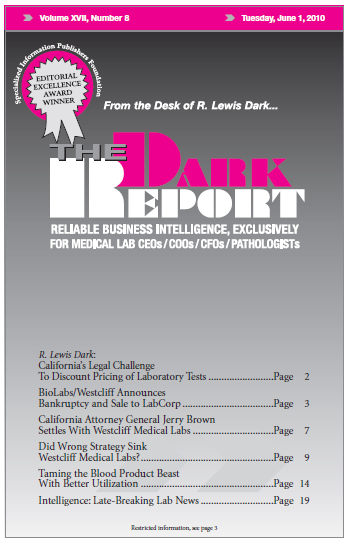CEO SUMMARY: In California, Attorney General Jerry Brown is making progress in the whistleblower lawsuit alleging that seven lab companies in California violated state law by not giving Medi-Cal, the state’s Medicaid program, the same lowest lab test prices they extend to physicians, managed care plans, and IPAs. Westcliff Medical Laboratories, Inc., is the first …
AG Jerry Brown Settles With Westcliff Med Labs Read More »
To access this post, you must purchase The Dark Report.


